Is Acne Worse in Winter? The Surprising Link Between Seasonal Changes and Skin Health

Acne is one of the most common skin conditions worldwide, affecting people of all ages. However, as temperatures drop and autumn turns into winter, many find themselves dealing with more frequent or intense breakouts. But why exactly is acne worse in winter?
While many people believe that colder weather simply dries out the skin, the science behind winter acne is more complex. The combination of environmental factors, changes in skin oil production, and the skin’s microbiome all contribute to seasonal acne. In this article, we’ll explore the science behind autumn and winter breakouts, focusing on the role of bacteria, inflammation, and practical skincare solutions to keep acne under control during the colder months.
The Science Behind Acne: Understanding the Skin Microbiome and C. acnes
Our skin is more than just an external covering; it’s a living ecosystem teeming with beneficial bacteria that work to protect and support skin health. Known as the skin microbiome, these naturally occurring microorganisms create a barrier that guards against harmful pathogens and helps regulate immune function. However, this balance between “good” and “bad” bacteria is delicate, and when it’s disrupted, various skin issues—including acne—can emerge.
Cutibacterium acnes, or C. acnes, is the primary bacteria responsible for acne. Living naturally on our skin, this bacteria typically remains in balance with other microorganisms, but when seasonal shifts disrupt this balance, acne can become worse in winter. When factors like increased sebum (skin oil) production, environmental changes, or hormonal fluctuations come into play, C. acnes can thrive excessively. This bacteria feeds on sebum, and as it multiplies, it can clog pores and trigger inflammation, resulting in breakouts. Environmental factors, like temperature changes, humidity shifts, and exposure to irritants can all aggravate acne, making it especially challenging to manage as seasons change.
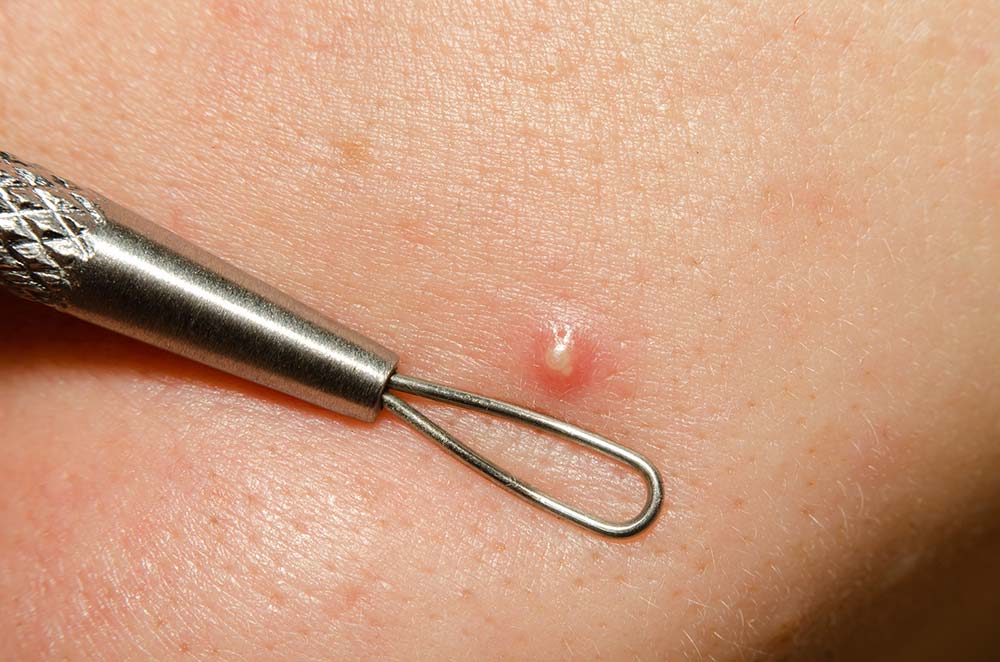
Why Acne Worsens in Autumn and Winter
As the weather cools, certain factors make acne-prone skin more susceptible to breakouts. Here’s why you might experience more acne in autumn and winter:
- Bacterial Growth and Oil Trapping – Cold air can make acne worse in winter as people tend to spend more time indoors with heating systems, which can dry out the skin’s surface. In response, the skin tries to protect itself by producing more sebum. When excess oil combines with trapped bacteria in the pores, it creates an ideal environment for C. acnes to proliferate, leading to visible acne flare-ups. Additionally, the remnants of a summer tan, which may have masked blemishes, start to fade in autumn, making breakouts more apparent.
- Increased Sebum Production and Inflammation – Cold, dry air is notorious for irritating the skin barrier, which plays a significant role in preventing acne. The drier environment causes the skin to compensate by producing more oil, leading to clogged pores and inflammation. For those prone to acne, this increase in sebum production can exacerbate breakouts and leave the skin looking red and inflamed. Moreover, this inflammation weakens the skin’s defence against bacteria, amplifying the severity of acne.
- Reduced UV Exposure – In the summer months, mild exposure to UV rays can have a positive effect on acne, as it helps regulate the skin’s microbiome and immune response. However, the shorter days of autumn and winter mean less natural sunlight, which can disrupt the microbiome. This reduction in UV exposure, combined with indoor heating and environmental dryness, can further throw off the skin’s balance, making acne worse in winter.
- Holiday Season Stress – In addition to environmental factors, the holiday season is often accompanied by higher levels of stress, whether from social obligations, family gatherings, or seasonal workload. This stress can trigger hormonal changes that impact sebum production, often making acne worse in winter. Therefore, stress management is a vital component of winter skincare.
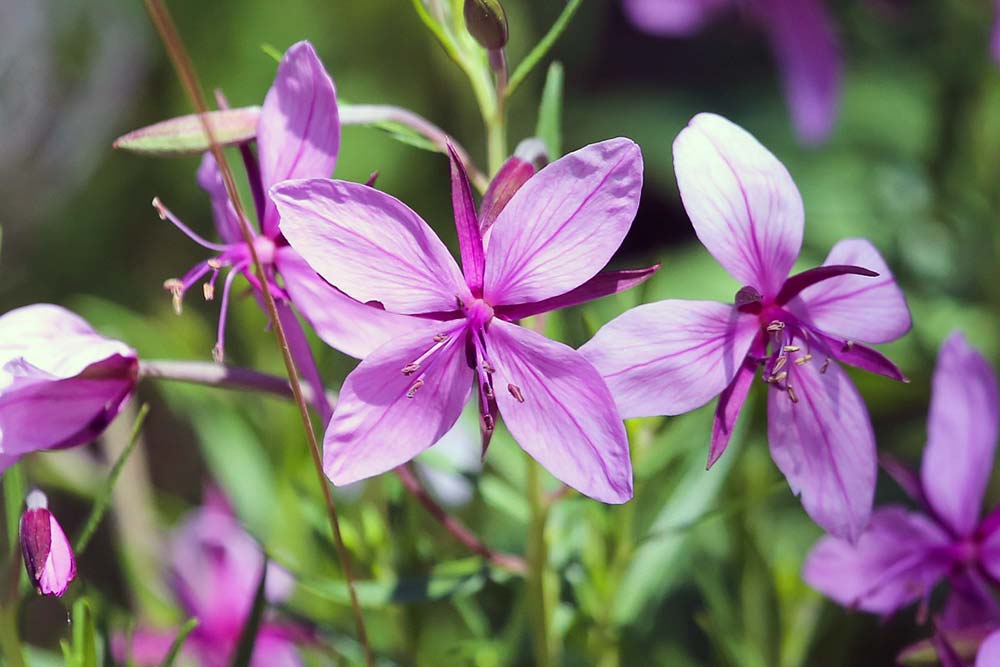
Epilobium Extract: Nature’s Prebiotic Solution for Acne
One natural solution to managing acne, especially in colder months, is Epilobium fleischeri extract. This unique prebiotic ingredient has been shown to support the skin microbiome by encouraging the growth of “good” bacteria while keeping acne-causing bacteria in check.
Clinical Evidence of Epilobium’s Benefits
Studies indicate that Epilobium extract has remarkable prebiotic properties that effectively reduce inflammation and bacterial imbalance in the skin. This extract can suppress “bad” bacteria like Staphylococcus capitis and Corynebacterium kroppenstedtii, which are linked to redness and irritation. Simultaneously, it promotes beneficial bacteria, such as Staphylococcus epidermidis, known to enhance the skin’s resilience.
Another significant component of Epilobium extract, Oenothein B, acts as an antioxidant that helps control sebum production. Through its inhibition of the enzyme 5-alpha-reductase, which regulates oil production, Oenothein B contributes to a decrease in excessive sebum, thus supporting clearer and more balanced skin. Regular use of this ingredient has shown results within weeks, including reduced pore size and less visible oiliness.
- For those seeking to incorporate Epilobium extract into their routine, our Ideal Rebalancing Level Serum contains this powerful ingredient, helping to manage sebum levels and support a healthy microbiome balance.
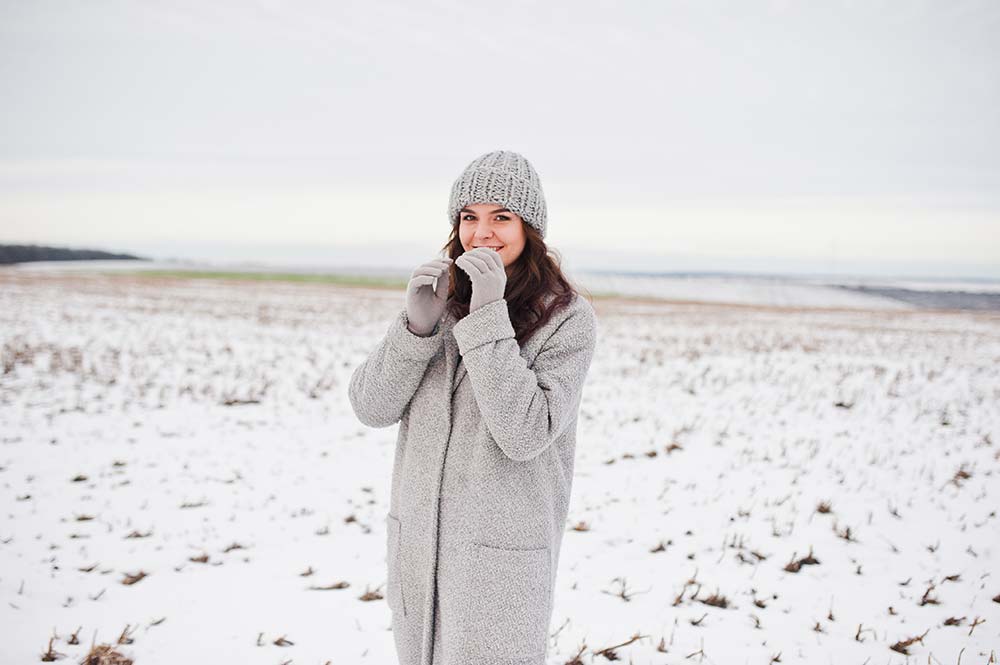
Tips for Managing Fall Breakouts and Winter Acne
As autumn and winter bring about changes in skin health, adjusting your skincare routine can be key to preventing acne flare-ups. Here are some practical, season-specific tips for keeping acne under control when the weather turns colder:
- Gentle Cleansing
Opt for gentle cleansers that cleanse without overly drying, which is especially important if you’re noticing acne worse in winter due to irritation and dryness. This helps maintain the skin’s natural barrier, preventing the overproduction of sebum as harsh, foaming cleansers can strip the skin of its natural oils.
- Keep Bedding Clean
Bacteria can quickly accumulate on pillowcases, transferring to the skin and potentially clogging pores. Regularly washing pillowcases—at least once a week—is a simple step that can help reduce bacterial transfer and minimise acne risk.
- Alcohol-Free Toners
Many toners on the market contain alcohol, which can dry out and irritate the skin. Switching to an alcohol-free toner that hydrates rather than strips the skin, especially when acne is worse in winter, helps to maintain its natural balance and resilience against acne-causing bacteria.
- Balanced Skin Detox
Opting for a product to detox your skin can help remove dead skin cells that can clog pores but overdoing it can disrupt the skin barrier. A combination of gentle clay masks and/or activated charcoal-based formulas can keep the skin smooth without causing irritation. We love Charcoal Peace Calming Cleanser.
- Hydrating and Barrier-Supporting Products
Cold weather can make acne-prone skin both oily and dehydrated, leading to increased sensitivity. To counter this, barrier-supporting ingredients like unsaponifiables derived from sources such as sunflower, wheat germ, and olive can be highly beneficial. These compounds help lock in moisture while maintaining the integrity of the skin barrier. Our Intelligent Frontier Facial Oil is an excellent choice for adding these beneficial nutrients to your winter skincare routine, supporting a balanced microbiome and reducing irritation. Note that this facial oil improves the quality of your sebum which is crucial.
- Avoid Overly Drying Acne Products
Traditional acne treatments often contain high levels of benzoyl peroxide or salicylic acid, which can worsen dryness and irritation during the colder months. Opt for milder treatments or reduce the frequency of application to avoid stripping the skin of essential moisture. This gentler approach can lead to clearer skin without exacerbating winter dryness.
- Prioritise Sleep
Adequate sleep helps regulate hormones and reduce stress, both of which play significant roles in acne. The holiday season can be stressful, so make a conscious effort to prioritise rest.
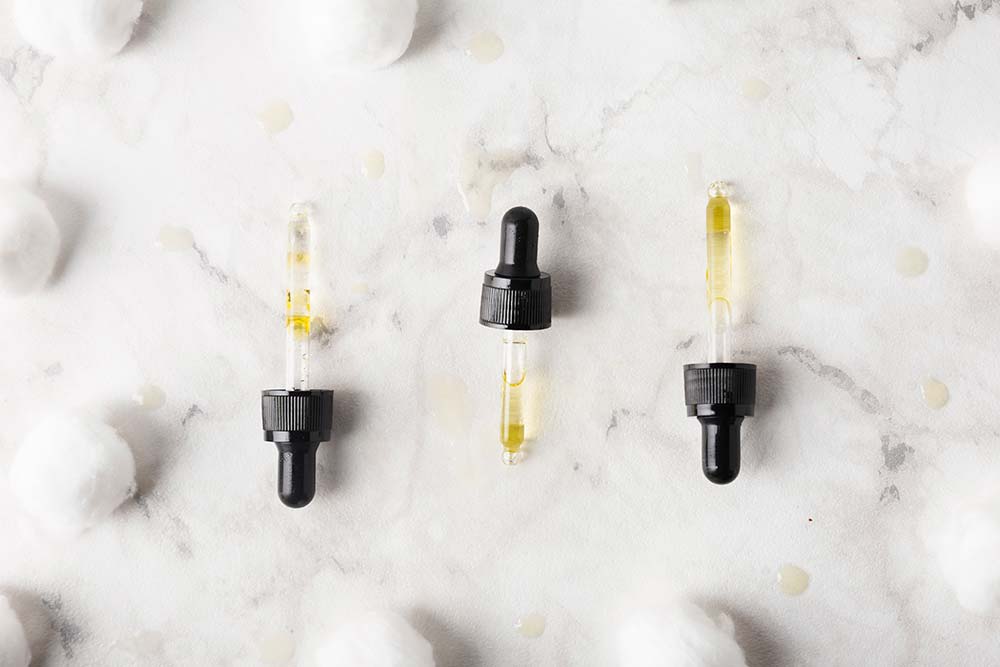
Winter Skin Care
Colder months call for a few unique strategies to keep the skin protected and prevent seasonal acne. Here are some additional winter skincare tips:
- Protect Your Skin Outdoors: Cold, windy air can quickly dry out and irritate exposed skin. Wearing a scarf or other protective clothing over your face can help shield it from harsh environmental conditions.
- Stick to Your Routine: Consistency is key in skincare, especially if you’re on a treatment plan or medication for acne. Resist the urge to switch products frequently, as this can lead to imbalances and irritations.
When to Seek Professional Help
For people who find acne worse in winter, breakouts can often be managed with over-the-counter skincare products and lifestyle changes. However, persistent or severe acne, which can lead to scarring, may require dermatological care. Early intervention can prevent worsening conditions and potential scarring, and a dermatologist can recommend treatments suited to your skin type and needs.
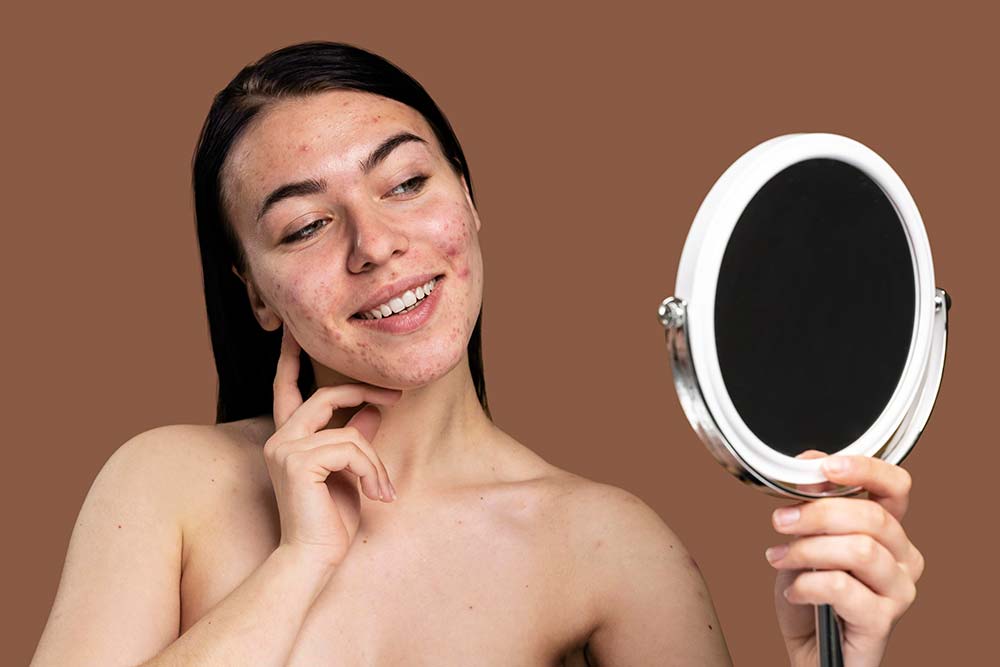
Embracing Skin Positivity
Finally, it’s important to remember that acne is a common experience, and everyone’s skin journey is unique. In recent years, the skin positivity movement has helped reduce stigma and promote a more accepting view of skin conditions like acne. Embracing this movement not only promotes a healthier self-image but also reminds us that achieving perfect skin shouldn’t be the goal. Instead, strive for healthy, balanced skin that feels good for you.
While there’s no single solution, understanding why acne worsens in winter helps tailor a skincare approach that works year-round.